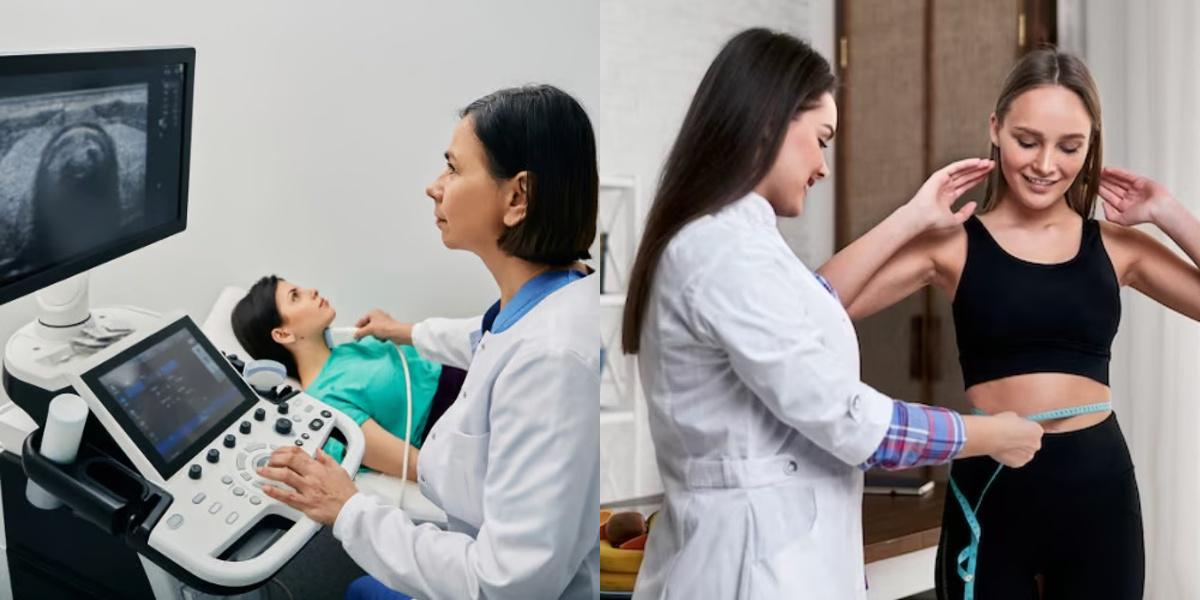Diagnostic Medical Sonographer vs Personal Trainer and Nutrition Coach

Key Points:
- Diagnostic Medical Sonographers typically earn higher salaries than Personal Trainers and Nutrition Coaches.
- Diagnostic Medical Sonographers require formal education and certification, while Personal Trainers and Nutrition Coaches may have the option to obtain certifications through online or in-person training programs.
- Becoming a Diagnostic Medical Sonographer typically requires a longer and more expensive training program compared to becoming a Personal Trainer or Nutrition Coach.
In today's blog post, we will be comparing two professions: diagnostic medical sonographer and personal trainer and nutrition coach. Both of these careers are in the healthcare field, but they have different focuses and require different skill sets. Let's take a closer look at each profession and see how they differ.
Diagnostic Medical Sonographer vs Personal Trainer and Nutrition Coach: Education and Training
Diagnostic Medical Sonographer:
- Most diagnostic medical sonographers have an associate's or bachelor's degree in diagnostic medical sonography or a related field.
- They also need to complete a clinical internship or practicum to gain hands-on experience.
- Many states require sonographers to be licensed or certified, which typically involves passing an exam.
Personal Trainer and Nutrition Coach:
- While a degree is not required, many personal trainers and nutrition coaches have a bachelor's degree in exercise science, kinesiology, or a related field.
- Certification is not required, but it is highly recommended and may be preferred by employers.
- There are several reputable certification organizations that offer certifications for personal trainers and nutrition coaches.
Diagnostic Medical Sonographer vs Personal Trainer and Nutrition Coach: Career Outlook and Salary
Diagnostic Medical Sonographer:
- The career outlook for diagnostic medical sonographers is excellent, with a projected growth rate of 12% from 2020 to 2030, much faster than the average for all occupations.
- The median annual wage for diagnostic medical sonographers was $75,780 in May 2020, according to the Bureau of Labor Statistics.
Personal Trainer and Nutrition Coach:
- The career outlook for personal trainers and nutrition coaches is also positive, with a projected growth rate of 15% from 2020 to 2030, much faster than the average for all occupations.
- The median annual wage for fitness trainers and instructors was $42,780 in May 2020, according to the Bureau of Labor Statistics.
Final Thoughts
Both diagnostic medical sonographers and personal trainers and nutrition coaches play important roles in the healthcare field. While they have different focuses and require different skill sets, both professions offer opportunities to make a positive impact on people's health and well-being. If you are interested in a career in healthcare and enjoy working with people, either of these professions could be a great fit for you. Consider your interests, strengths, and career goals to determine which path is right for you.
Dreambound extends its programs to diverse locations. Delve deeper into information about these two vocations by visiting:

Pia Yapjoco is part of the school growth and sales team at Dreambound. She helps facilitate school partnerships that expand educational opportunities for aspiring students in allied health and other trades. Beyond work, she curates her pup's Instagram, hunts for hidden coffee gems, and escapes into cozy gaming.



